AITA for refusing to cook dinner for my in laws after my husband gave his mom all of my left overs?
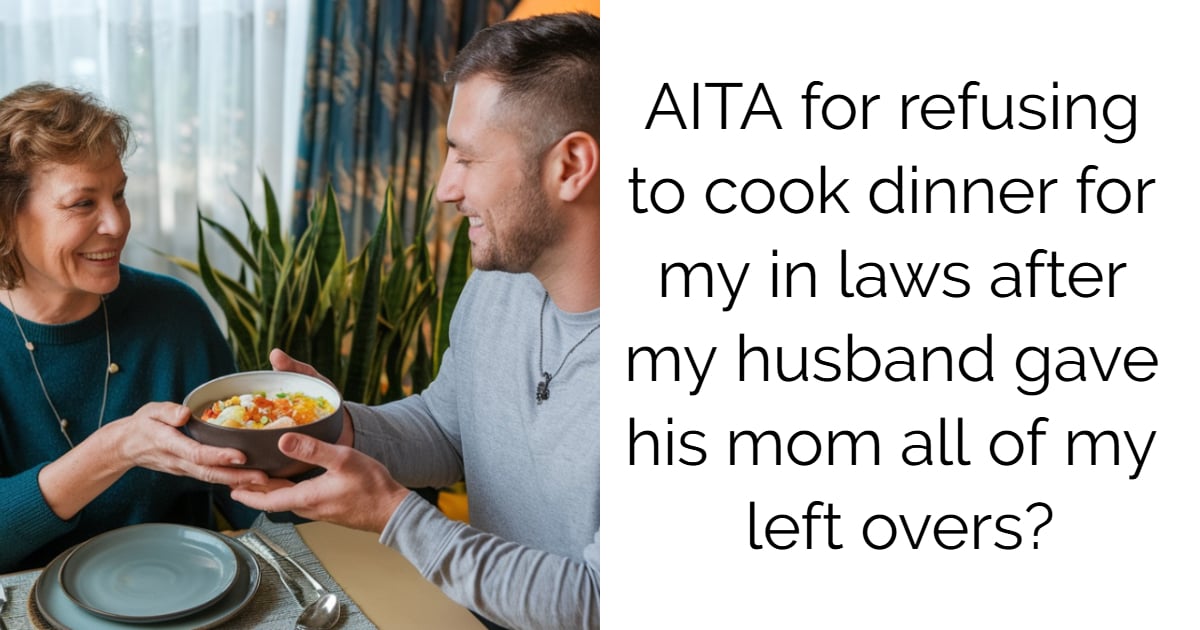
There are certain unwritten rules when it comes to hosting guests—especially when you’ve just had a baby. Usually, visitors bring food, offer help, and keep their stays light and easy. But for one Reddit user, the reality was far from this. Instead of support, she found herself not only cooking for guests but also having her much-anticipated homemade meal completely devoured.
OP, three months postpartum, had been craving homemade corn chowder since shortly after giving birth. Finally, after spending two days making a large batch, she was excited to enjoy it for days to come.
But when her in-laws arrived for dinner, they didn’t just sample her creation—they polished off the entire 20-cup batch. Her husband, instead of stopping them, let it happen. When she refused to cook dinner as planned, he called her reaction an overreaction. So, was OP justified in her frustration, or was she being too harsh?
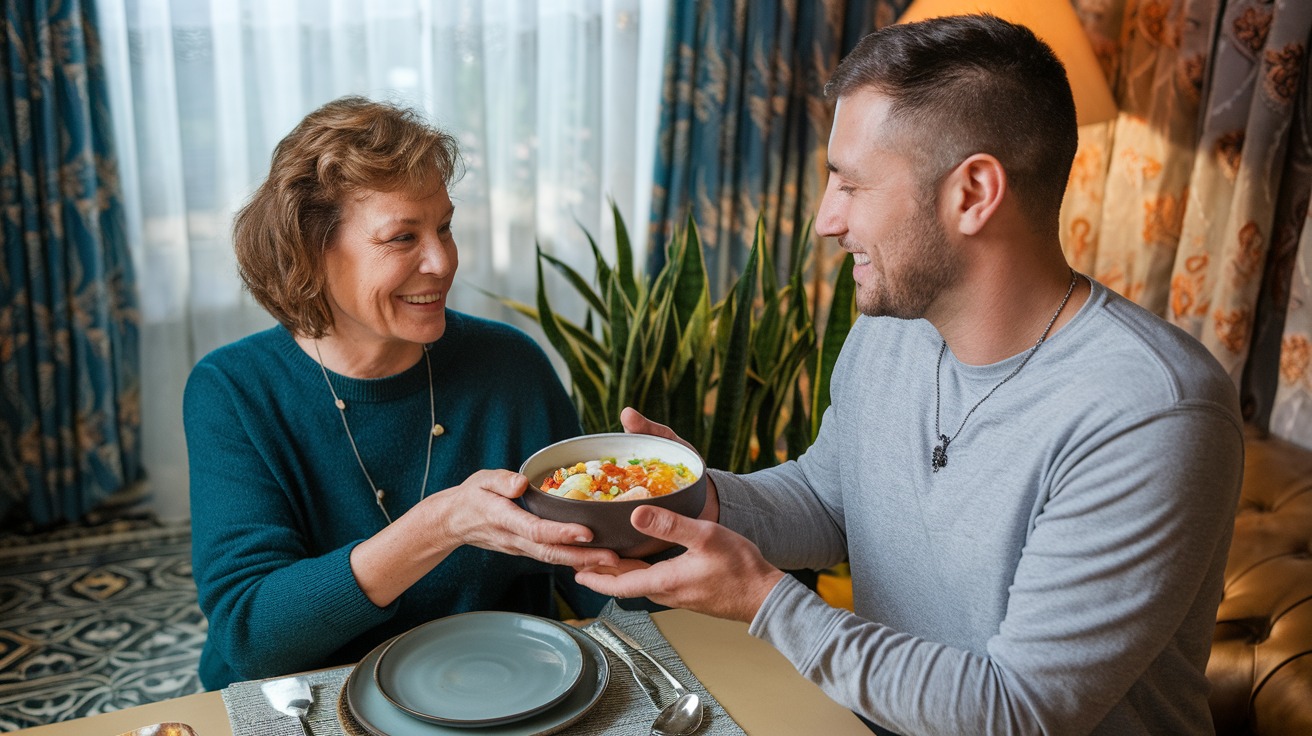
‘AITA for refusing to cook dinner for my in laws after my husband gave his mom all of my left overs?’

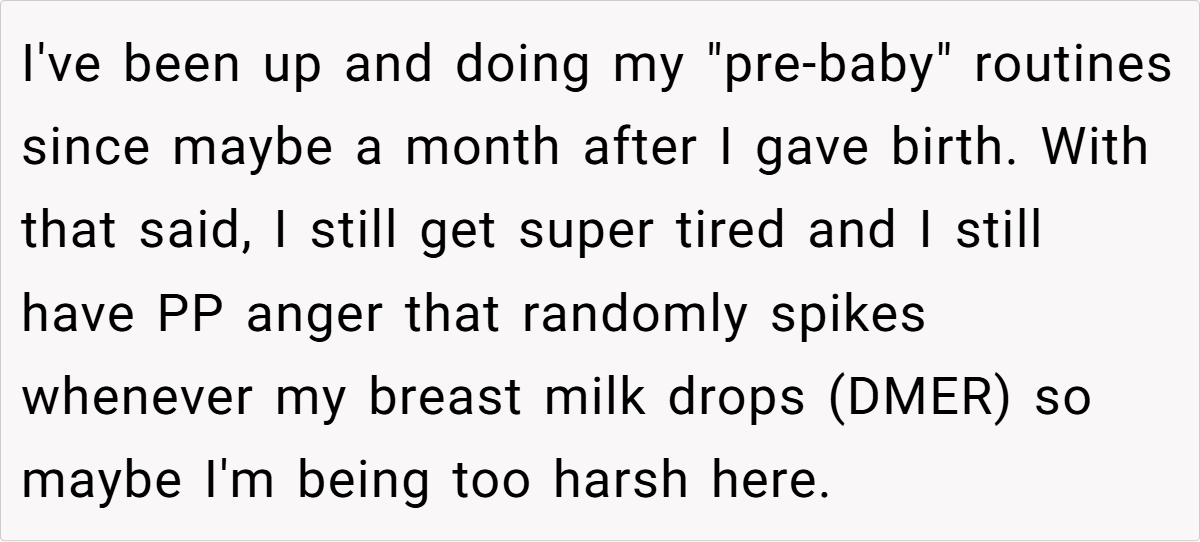
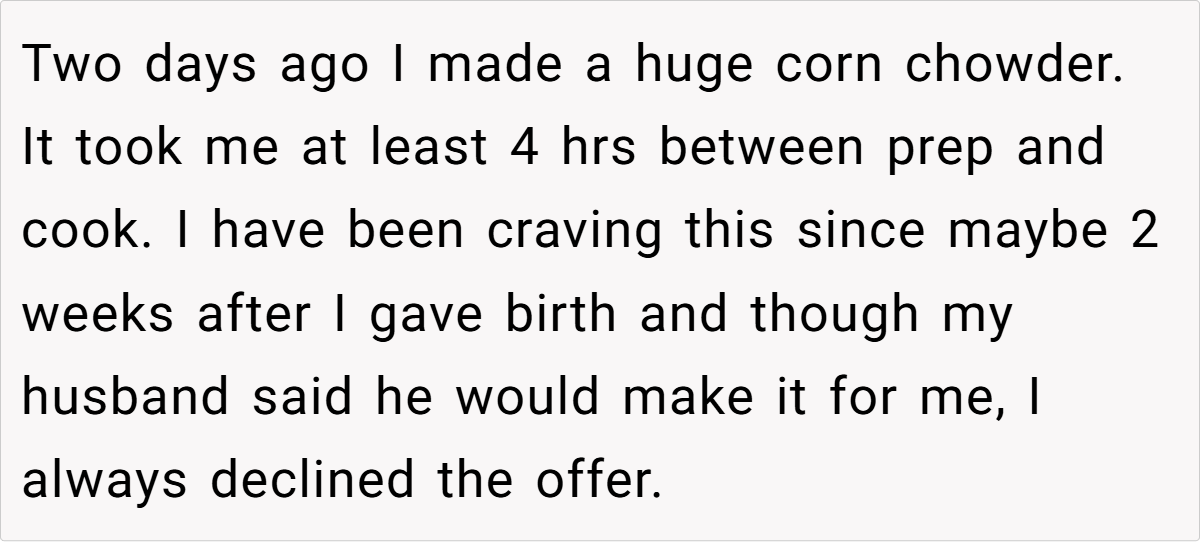

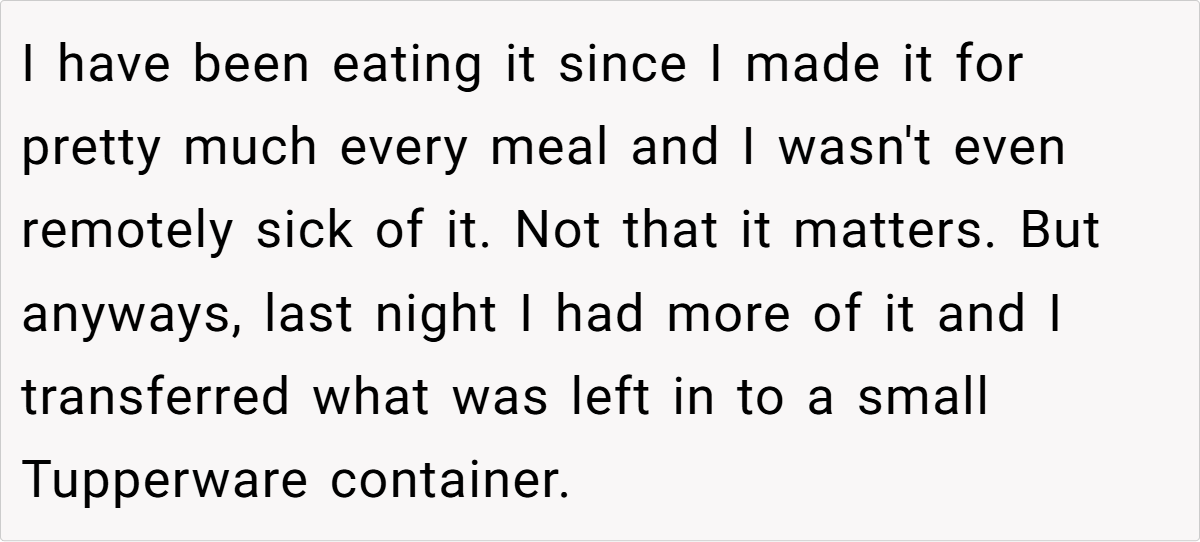
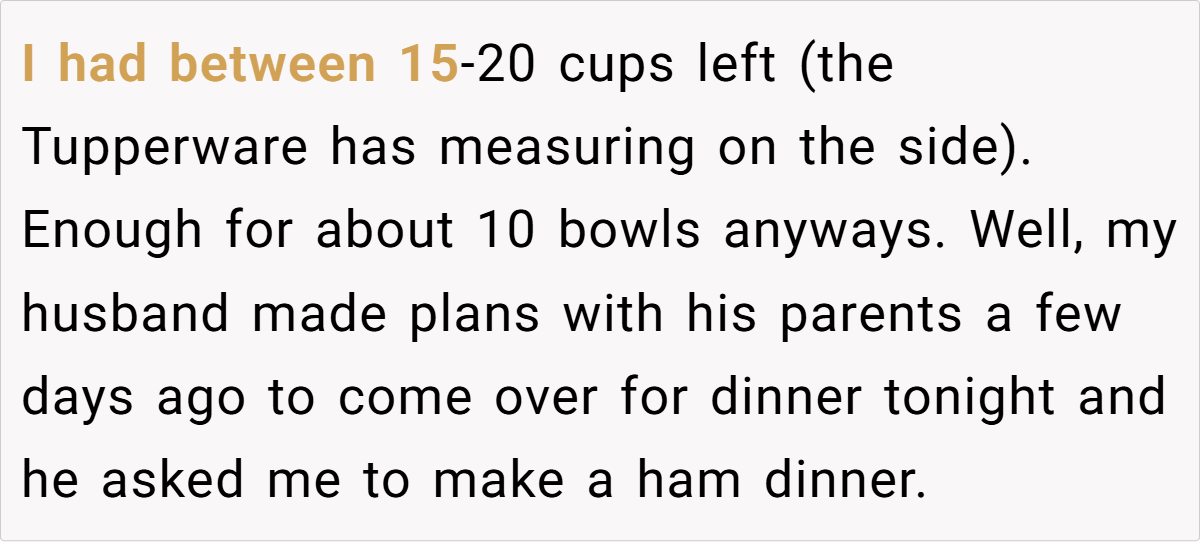
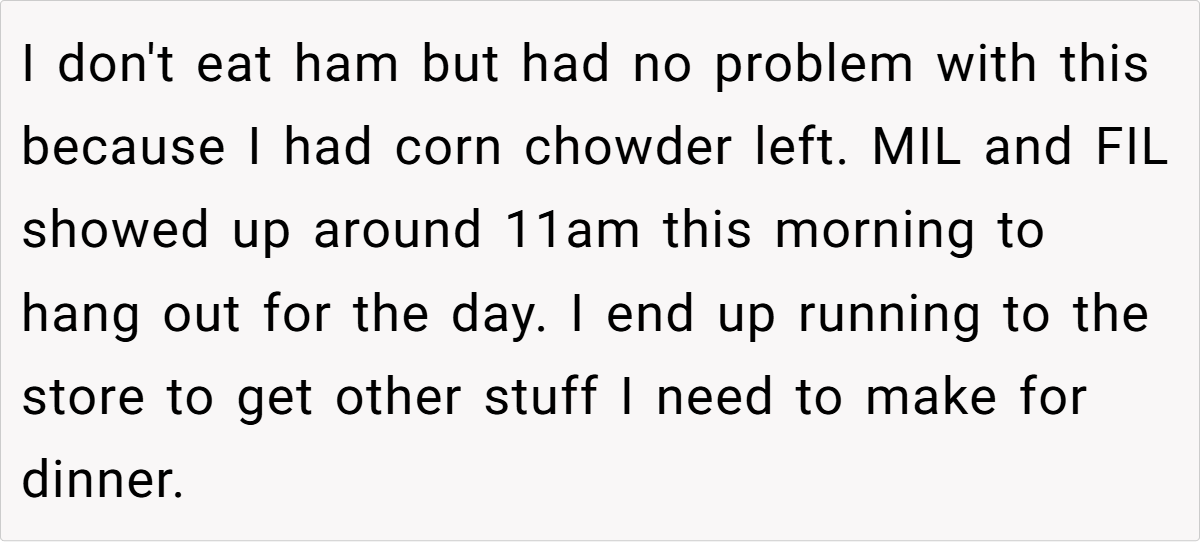

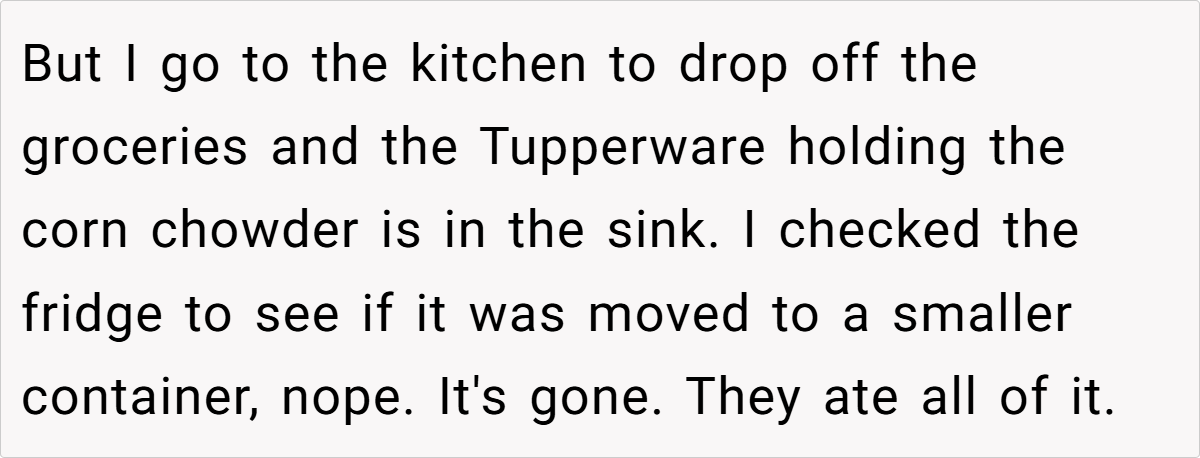
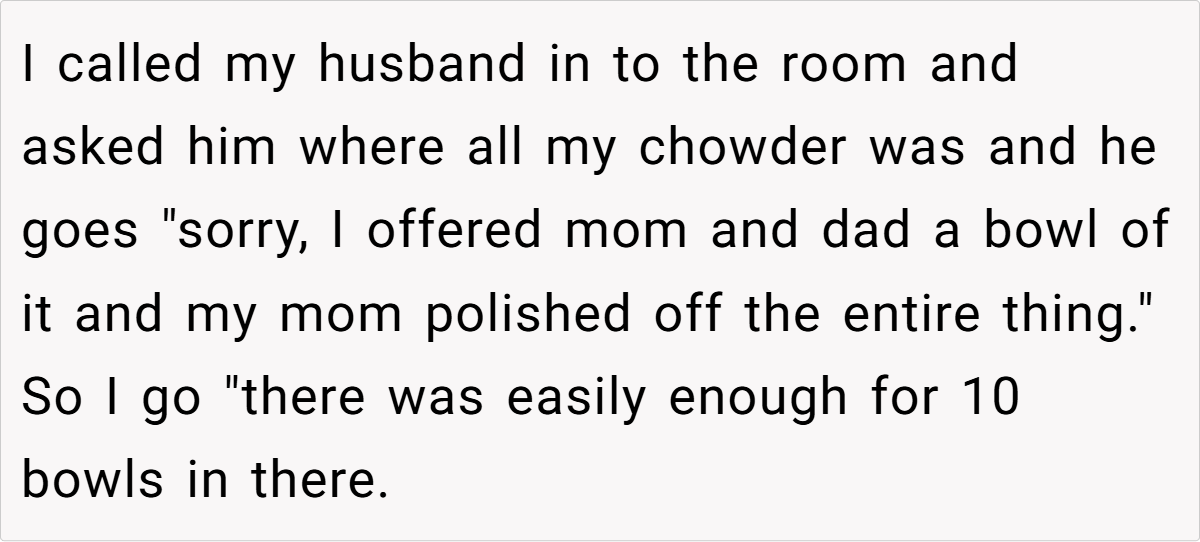
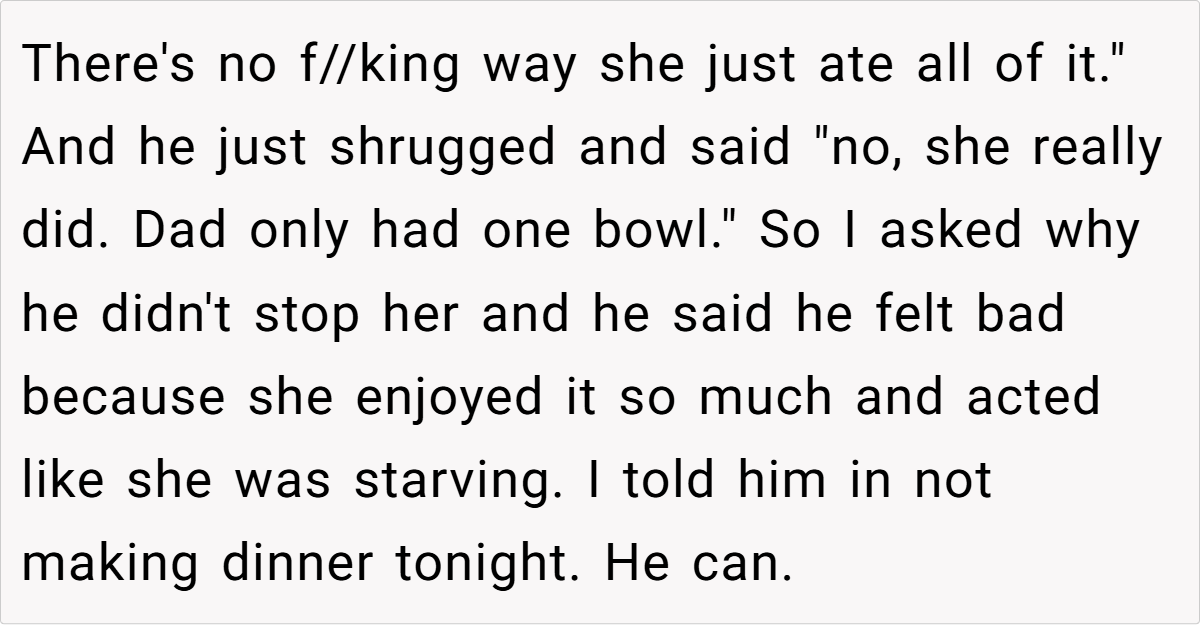
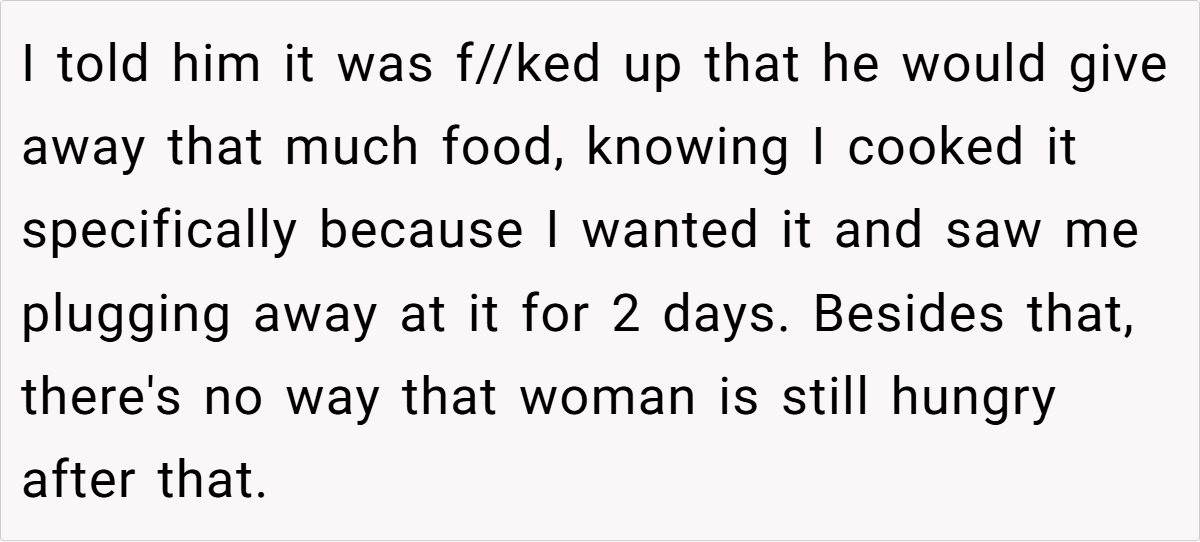
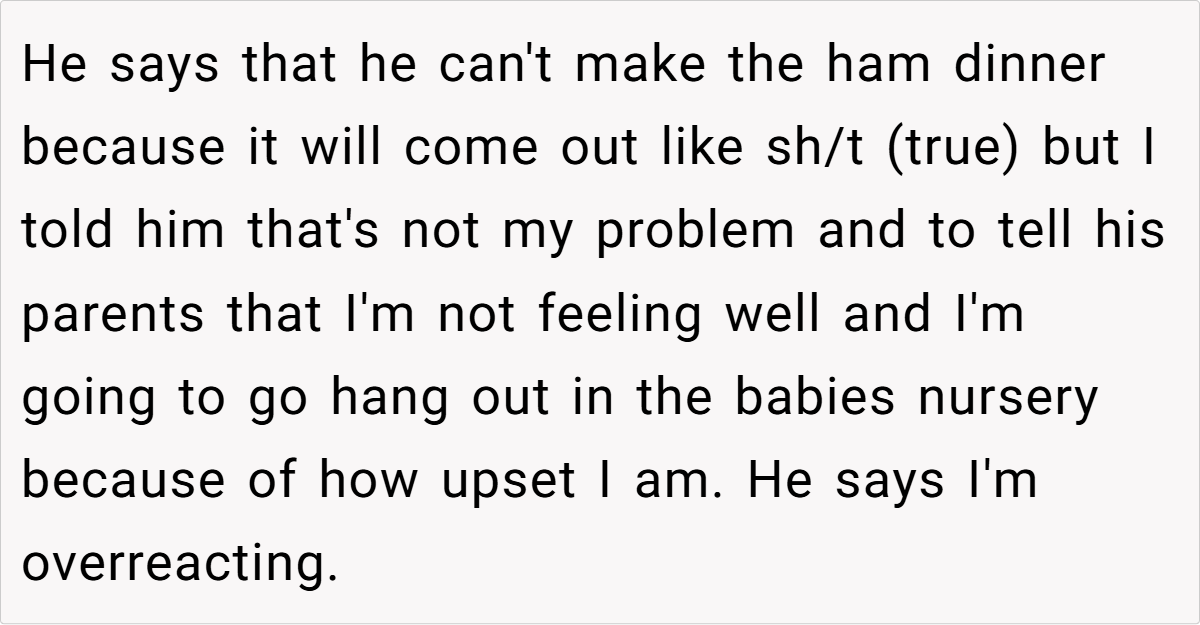
Expert Analysis:
Context and Conflict
At its core, this conflict isn’t just about food. It’s about respect, boundaries, and emotional labor. OP had been craving this dish for months, took the time to cook it, and saw it as something special for herself. The fact that her husband freely gave it away—knowing its significance to her—raises concerns about consideration and communication in their relationship.
The Psychology of Postpartum Needs and Support
According to the American Psychological Association (APA), postpartum recovery isn’t just about physical healing but also about emotional well-being. One study highlights that postpartum women require adequate support, including emotional validation and household assistance, to avoid burnout and resentment.
OP’s frustration is valid—not because of the soup alone, but because of the underlying dismissal of her needs. In postpartum recovery, small acts of support, like respecting a simple food preference, can have a big emotional impact.
How Weaponized Incompetence Plays a Role
Weaponized incompetence, a term used in relationship psychology, refers to when one partner feigns inability to perform a task so the other partner takes over. In this case, OP’s husband insisted he couldn’t cook, placing the responsibility back on her, despite knowing she was upset and didn’t even eat ham.
Dr. Tracy Cassels, a researcher in family dynamics, notes that this pattern can create resentment and an uneven division of labor.
Proposed Solutions and Lessons Learned
To maintain respect and fairness in relationships, OP and her husband could consider the following:
- Establish Clear Food Boundaries – Leftovers, especially those cooked with specific intent, should not be freely given away without asking. Having a shared understanding of meal preferences can prevent conflicts.
- Encourage Shared Household Responsibilities – Instead of relying on OP to do all the cooking, her husband can learn basic recipes. If he insists he “can’t cook,” then ordering takeout or asking his parents to bring food could be a viable solution.
- Address Postpartum Support Needs – OP’s husband should acknowledge that postpartum support includes small gestures of consideration. Recognizing the importance of OP’s cravings and ensuring she gets her share of food is part of being a supportive partner.
- Set Expectations with Guests – OP’s in-laws may not have realized how much they overstepped. A direct but polite conversation about food boundaries for future visits might prevent similar situations.
- Encourage Emotional Validation – Instead of calling OP’s reaction an overreaction, her husband could acknowledge her feelings and find a compromise that doesn’t dismiss her needs.
By addressing these concerns, OP and her husband can work toward a more balanced partnership where both feel respected and supported.
Here’s what Redditors had to say:
The overwhelming consensus? OP was justified in her frustration. Many commenters pointed out that postpartum women should be receiving help, not being burdened with extra work. Others questioned how one person could possibly eat that much soup in a single sitting.
Many also criticized OP’s husband for failing to defend her needs and instead siding with his mother.


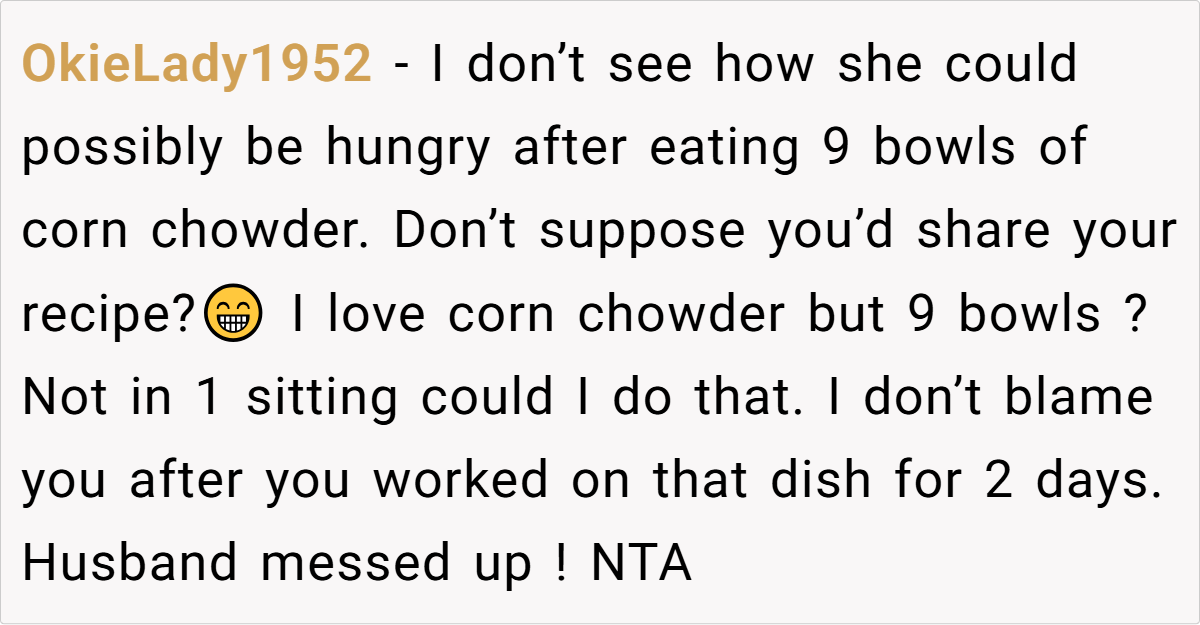

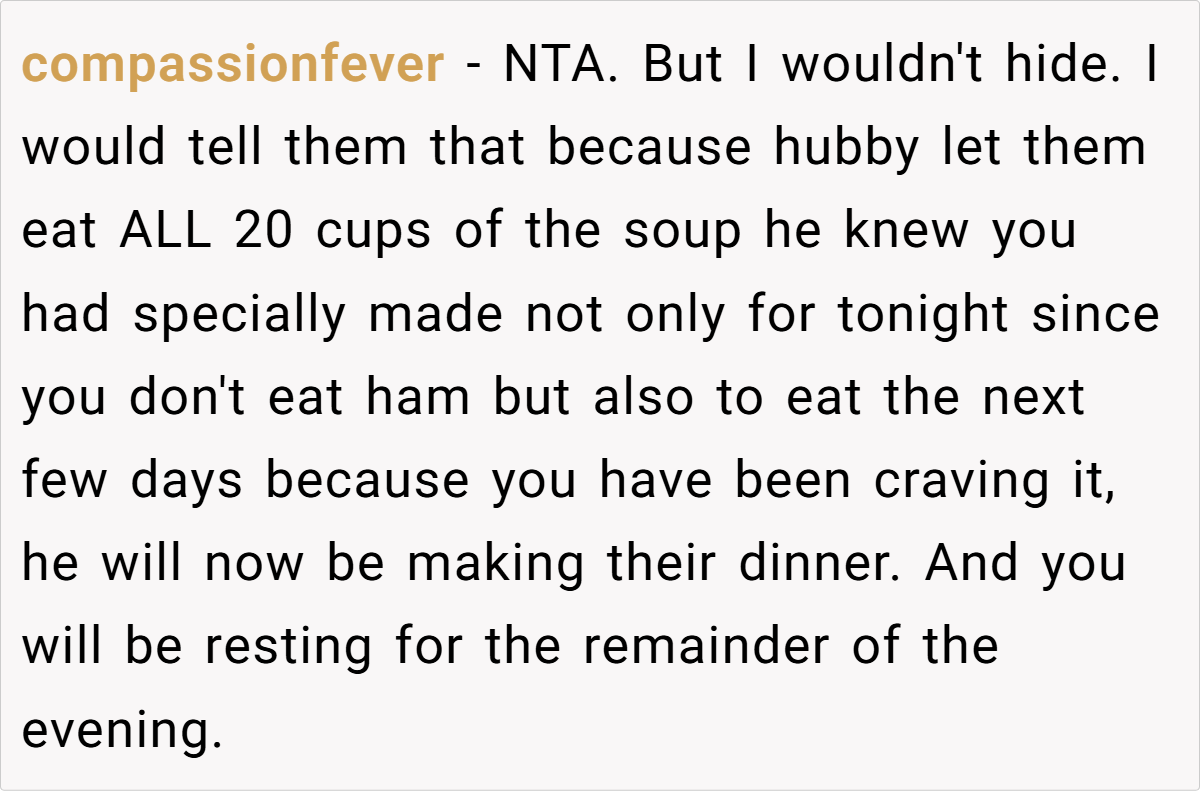

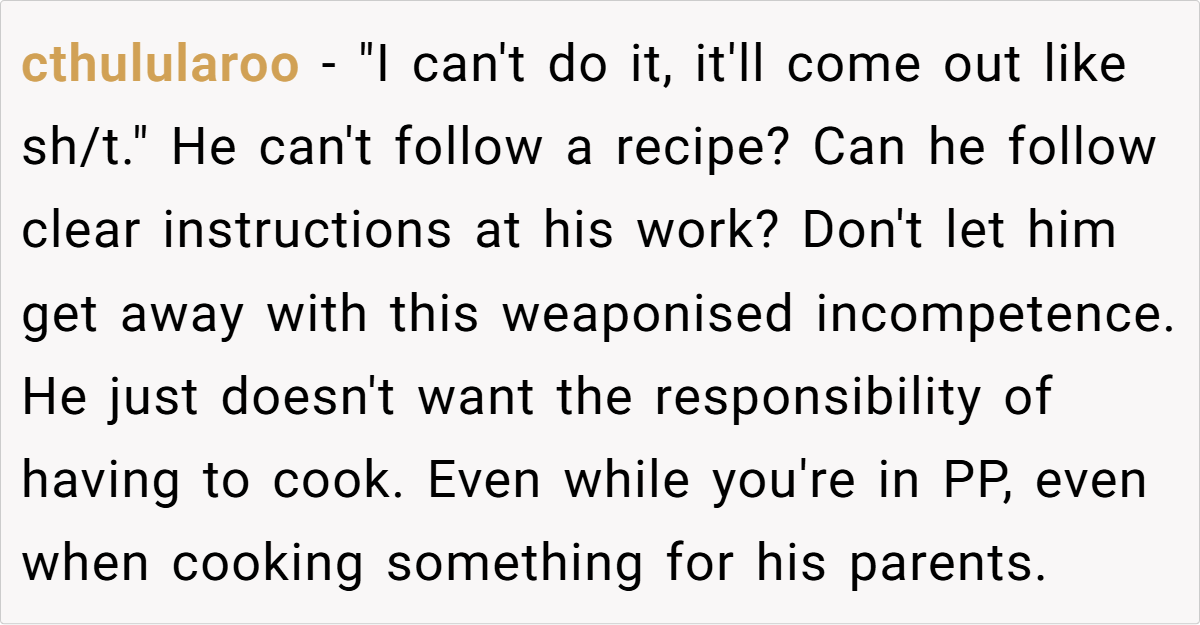
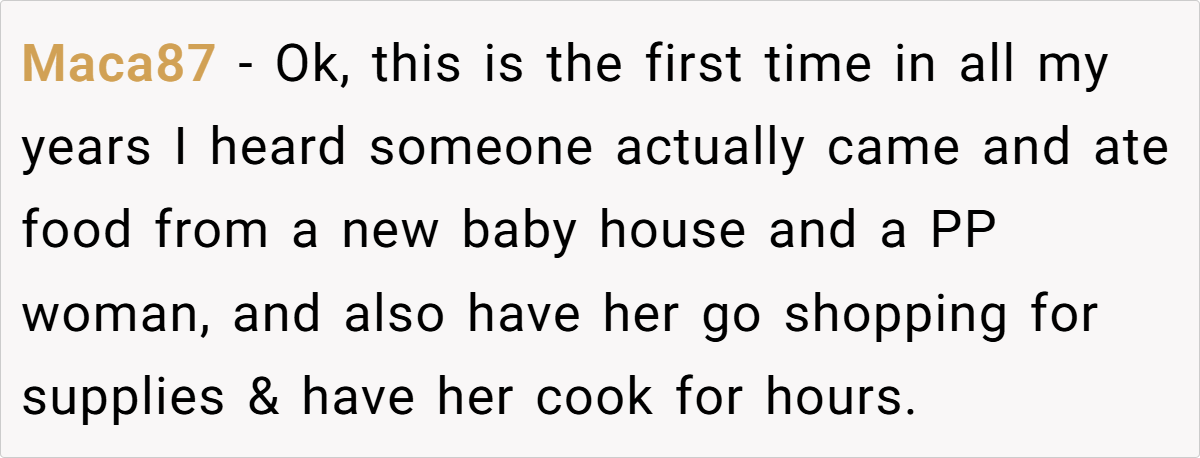

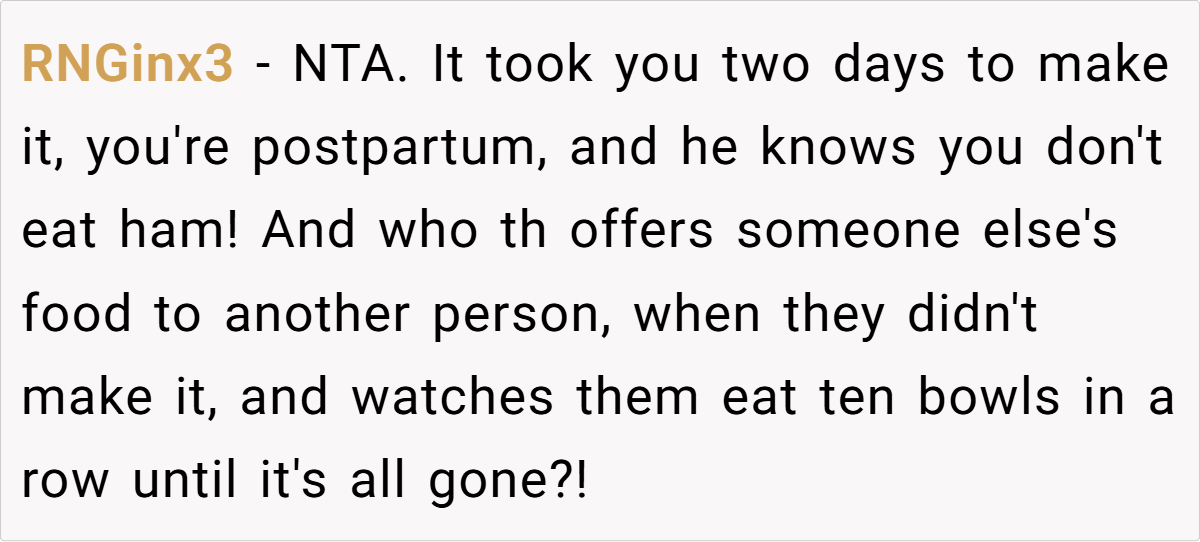


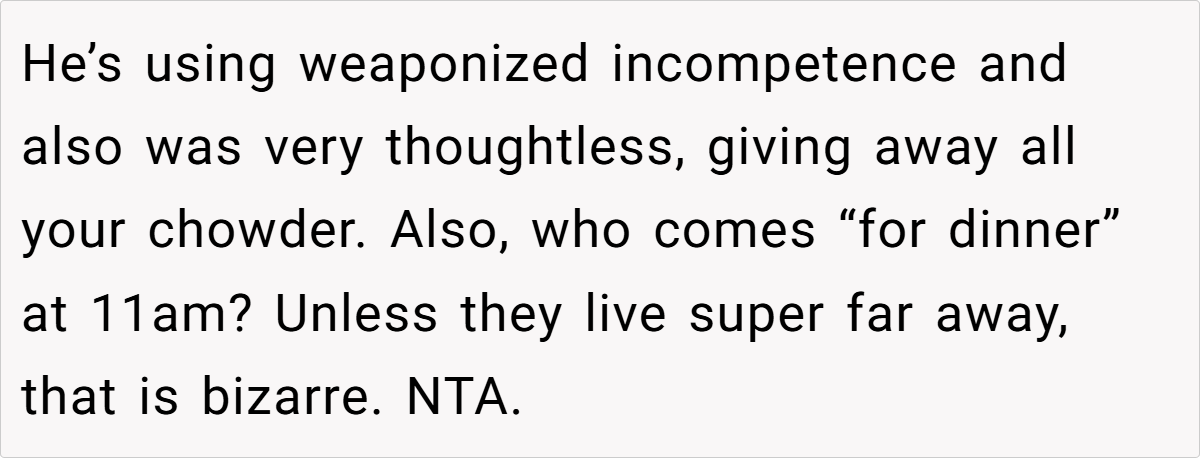
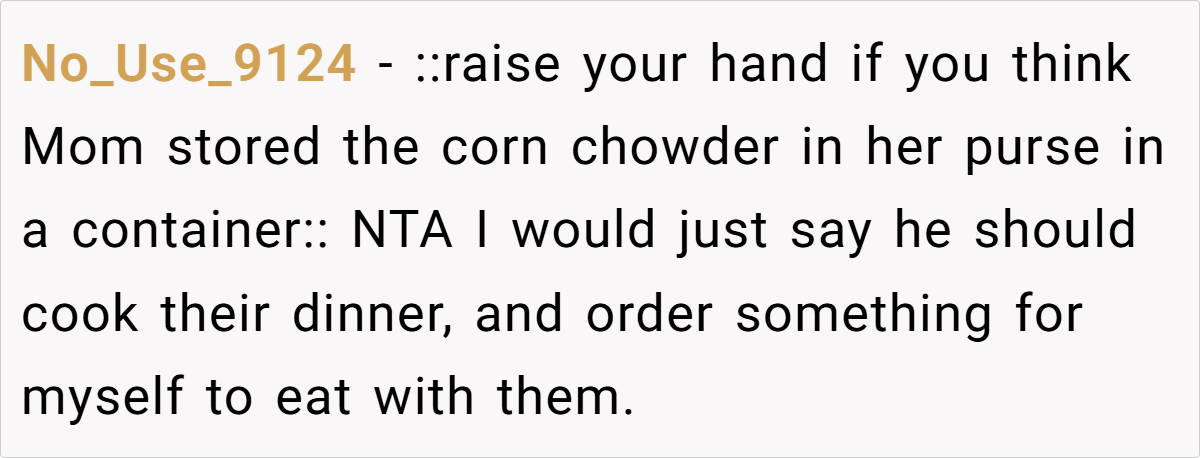
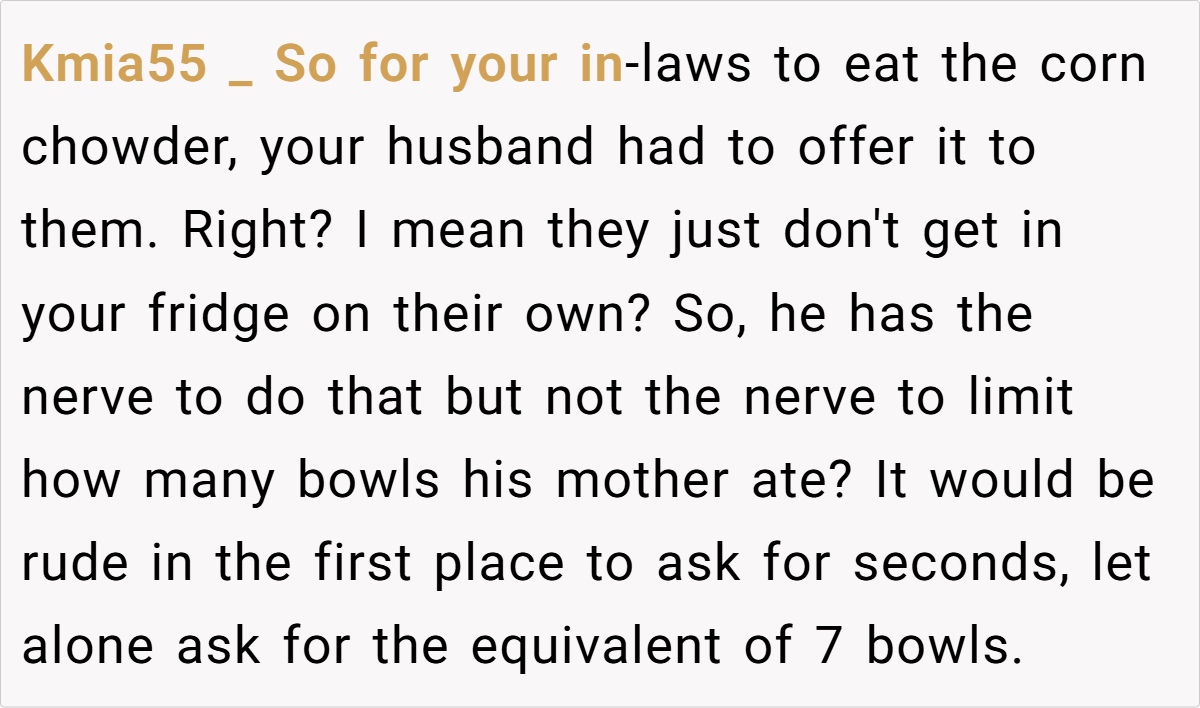



This situation isn’t just about food—it’s about consideration and respect in a relationship. While OP’s husband may not have intended harm, dismissing her feelings and expecting her to cook after losing something she had put so much effort into was thoughtless.
The key takeaway? Relationships require communication, mutual respect, and, in cases like this, the simple act of asking before offering someone else’s food. Would you have reacted the same way as OP, or do you think she overreacted?

